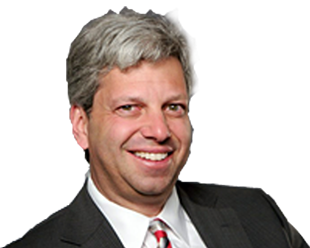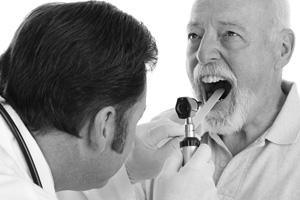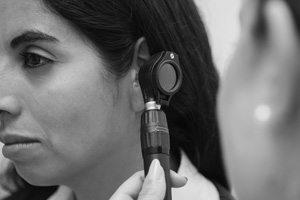View the complete list of conditions
Do You Suffer From Chronic Sleep Apnea?
Sleep apnea is classified as a sleep disorder that presents as pauses in breathing during sleep. There are a few different kinds: central sleep apnea, obstructive sleep apnea, and complex sleep apnea (a combination of the two). If they happen frequently enough, each of these classifications can be considered chronic. Sleep apnea can be diagnosed through a sleep study; you're unlikely to realize that you stop breathing throughout the night, but you might start to feel tired often or irritable, despite a seemingly full night of sleep. A sleep apnea specialist will diagnose you based on your symptoms and the results of the sleep study.
Types of sleep apnea
Obstructive sleep apnea is the most common, caused by collapsible walls of soft tissue. Central sleep apnea pertains to the brain's respiratory control centers, specifically to the levels of carbon dioxide in the blood. Complex sleep apnea is a mix between both types. Based on your symptoms, a sleep apnea specialist will be able to diagnose your type and figure out the best method of treatment. It's important that you keep track of your sleep patterns, including any symptoms you feel the next day. Depending on the severity of your condition, you can range anywhere between 5 and 30 events (pauses in breathing) per hour. Needless to say, that much interrupted sleep will have an impact on you the next day!
A sleep apnea specialist will be able to observe you during a sleep study, like a polysomnography or PSG. The procedure tracks your biophysical changes during sleep and will help doctors figure out what's happening during your events. These changes can include eye movements, muscle movements, heart rhythm, and brain activity. Chronic sleep apnea tests would also include respiratory airflow tests. A sleep apnea specialist uses this information to diagnose you and figure out a) what type you have and b) what the best method of treatment would be in your case.
Treat sleep apnea disorders effectively
Sleep apnea disorders can really impact your daily life in a negative way. The condition often presents through snoring, which (depending on the severity) will make it difficult for your partner to sleep. You'll feel tired and cranky throughout the day, even though you think you've gotten a full night of sleep. Patients with sleep apnea disorders often don't realize they are actually afflicted until there is a definitive diagnoses; many just believe they aren't sleeping well. Treating sleep apnea will help you feel more energetic and happier throughout the day. Don't suffer night after night; consult with a sleep apnea specialist and see what can be done about your condition!
Conditions
Ears
Nose
- Ballon Sinusplasty Surgery
- Concha
- Deviated Septum Relief In NYC
- Deviated Septums
- Fixing a Deviated Septum
- Identifying A Deviated Septum
- How Do I Know if My Nose is Broken?
- Nasal Polyps
- Nasal Polyp Surgery
- Nasal Septums
- NYC Nasal Polyp Reduction
- Septoplasty And Turbinate Surgery
- Treating a Deviated Septum
- Treating Nasal Polyps
- Turbinate Reduction
Throat
- Dysphagia
- Leukoplakia Treatments
- Reflux Laryngitis
- Swallowing Disorders
- Treating Anosmia
- Vocal Disorders
Allergies & Asthma
- Dealing With Allergic Rhinitis
- Managing Allergies and Asthma
- How to Allergy-Proof Your Home from Indoor Allergens
Sinus
- Chronic Sinusitis Treatment
- Endoscopic Sinus Surgeries
- Sinus Headache Cure
- Sinus Infection Treatment
- Sinusitis Surgery
- Treating Sinus Infections
Sleep & Snoring
- Diagnosing Sleep Disorders
- Having Trouble Sleeping
- Home Sleep Studies
- Pillar Implants
- Pillar Treatment for Snoring
- Sleep Apnea Conditions
- Sleep Apnea Specialists
- Sleepless in NYC
- Sleep Study Diagnosis
- Can Snoring Cause Health Issues?
- Treating Sleep Apnea
- Treating Snoring
- What is a CPAP Device?





